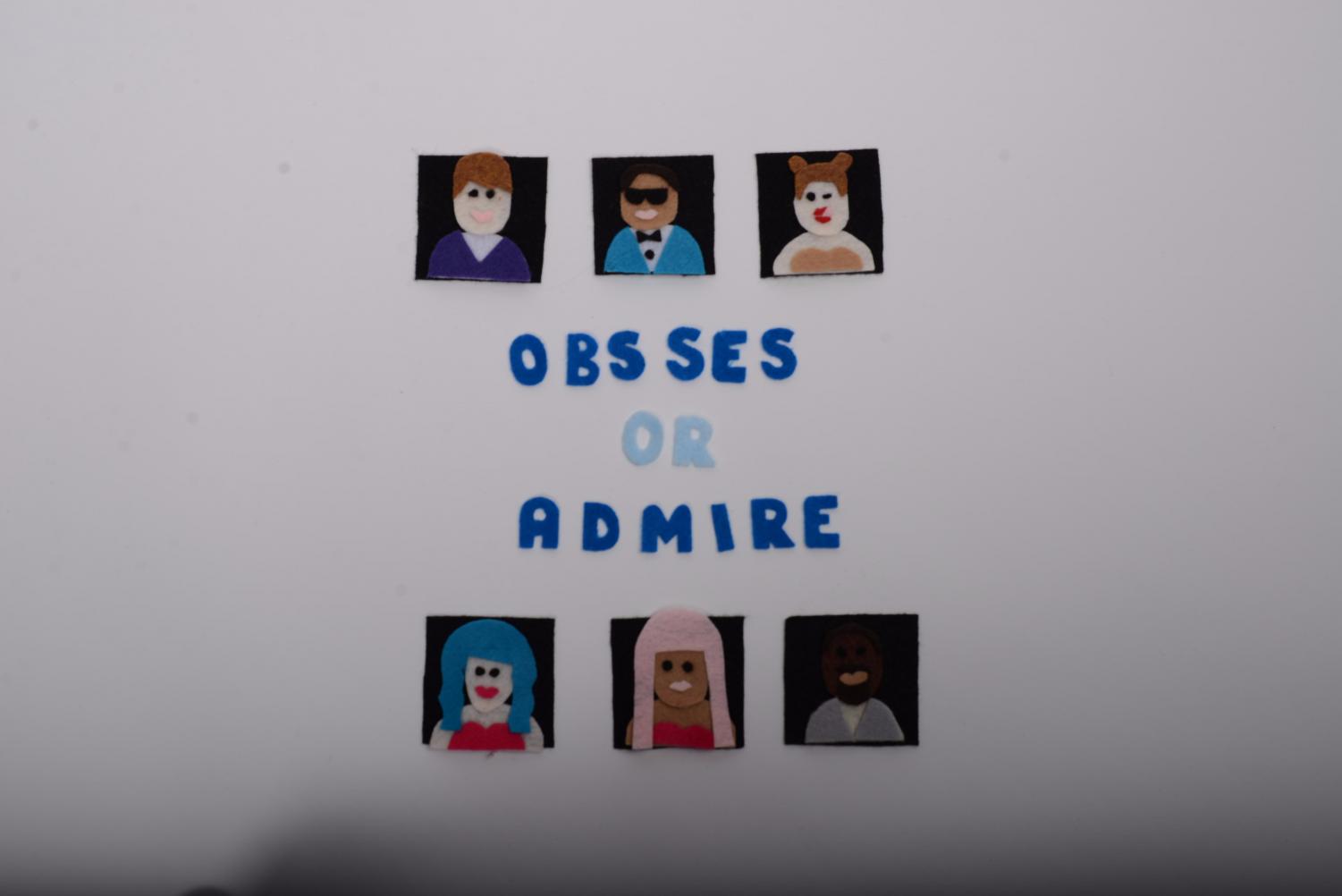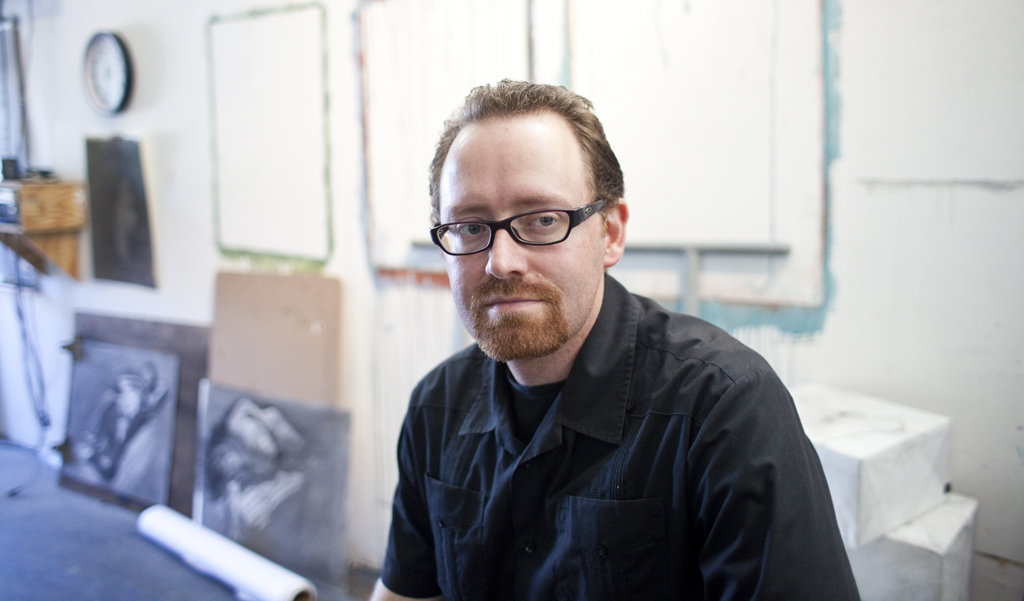Written by Deborah Kwak
“God knew what He was cooking,” says Dr. John McKinley, professor of biblical and theological studies at Biola. Ever since he was a teenager, McKinley had been on the road to becoming a professional cyclist. His identity, dreams and ambitions were wrapped around the world of competitive cycling for years, but the trajectory of his life began to change. From the ages of 19-21, McKinley learned what it meant to be a Christian.
Right out of college he became a high school history teacher, and then decided to serve in Campus Crusade for Christ for two years. While contemplating what the “Christian ideal” actually meant, he hit a major crisis in his life – like many Christians, he grew weary of trying. He reached rock bottom and his desperate cry was that God would lead him using his desires. He knew he liked school, he liked college and he enjoyed studying, so he started seminary at age 27.
Dreams meet cold reality
We graduate college filled with hopeful optimism, ready to take on the world’s problems. The sky is the limit and the future looks bright. We land our first job and find it to be less than what we expected. Instead of the adventure we hoped for, we soon discover that it is actually very mundane and the disappointment floods in. We feel the weight of knowing our calling in life, hoping to change the world and lead meaningful lives.
Meanwhile, the urgency of paying off piles of student loans looms over our heads. The first couple of years after college can be quite daunting as we roll into our tumultuous twenties. We go through a number of jobs, or maybe even stay stuck at the same job, with the nagging suspicion that we were created for so much more.
Often our dreams are two feet deep and two feet wide; they are too shallow and too narrow. The memories of our failures haunt us and leave us paralyzed with fear, which keeps us from pursuing our seemingly elusive goals. Instead of loving the process, we despise it.
We live in a time in history where, with the limitless range of communication and connection, there is so much inspiration to change the world. Why is there more pressure now for this than ever before? We all want to lead lives of significance, don’t we? In college, where dreams and aspirations are formed, it is easy to overlook the practical steps to get there. We are simply ready to take on the world and eagerly try to grow without setting our roots deep. How do we ground ourselves in reality while aspiring to fulfill our dreams?
The journey brings growth
In his talk “Why We Can’t Change the World,” Andy Crouch describes what statisticians call the “survivor bias,” where we reflect back on history and instead of remembering our failures, we pinpoint our successes. In a culture where less than perfect is unacceptable, the already deep-seated fear of failure can get the best of us.
Not working your dream job right after college, taking a job that does not require a college degree, and not being in the field you desire can all be perceived as failures. In fact, the prospect of walking down the path you had dreamed of seems nonexistent and your efforts appear to have been in vain. But maybe, just maybe, the seemingly bleak situations and setbacks are the soil for your dreams to bloom.
A dream attained
Countless prominent men and women experience, at some point in their lives, the stark contrast of their present circumstances with their dreams. At the University of Pennsylvania’s 2011 commencement speech, Denzel Washington shared how his failures paved the road for his success. In 2010, he did a play called “Fences” on Broadway and won the Tony Award for his outstanding performance, despite the fact that 30 years prior, he had failed his first audition at that same theater.
Sometimes, we let opposition guide us, and turn our dreams into failures. Amelia Earhart’s dream was to be an aviator. After her first airplane ride, she knew she had to fly. Despite the prejudice against female aviators at the time, Earhart seized the opportunity and became the first female aviator to fly across the Atlantic Ocean. She did not let the dissenting opinions of others deter her from her dream.
Perhaps if we listen close enough to these people’s lives and our own lives, we can learn something valuable. In dreary situations, when we have run out of the water we need to cultivate inspiration, creativity is planted. These circumstances prune true vision. Whether it is unforeseen obstacles or a lack of resources, these “setbacks” can actually be blessings in disguise; in hardship we find the silver lining.
The research of dreams
Fuller Seminary professor and author Dr. Robert Clinton, has done extensive research on historical, biblical and contemporary leaders and has come up with developmental adult life stages. He labels the age group 18-26 as “autonomy.” In this stage, individuals are developing a sense of self apart from their parents and childhood social spheres. The goal of these years is to discover what it means to be an adult and become defined as an individual through new relationships and experiences. It is normal to go through several jobs during this period and to create a sense of identity by trying out likes and dislikes.
The 2010 U.S. Census Bureau reported that only 27.3 percent of college graduates actually work at a job related to their major. According to Clinton, people generally do not start making commitments and establishing a permanent sense of self and direction until ages 32-40. As we are learning to be adults in a big world, the temptation may be to fall prey to the mentoring techniques the world has to offer. The messages of American individualism and self-reliance shout loudly everywhere we go. The fight is to remain like a child, humble and dependent before God, as learned through our failures.
Dreams take time
College is a time to learn how to have the posture of a child. It is a time to be open to others and to new ideas, to accept change as an opportunity and to take chances. It is a time to develop the discernment needed to make important life decisions and imagine the possibilities. A time to set in stone our beliefs and values.
According to Jim Collins, the author of “Good to Great,” it takes 10,000 hours to master a skill and become truly great at something. The most difficult part is committing to the dailiness of the journey. As theologian Dietrich Bonhoeffer, a martyr during WWII, says, “The hardest thing about the Christian life is that it’s so daily.”
In a culture addicted to constant stimulation and experiencing the next big thing, it is becoming increasingly difficult to stay faithful to what is set before us in the present. Our lives seem boring compared to the images posted on Facebook and Instagram and we cannot help but compare as we look for ingredients to spice up our lives. The grass always looks greener on the other side.
“It is good to have some realistic expectation of the type of job that is entry level for graduating seniors,” says Tiffany Lee, Biola Career Counselor. Instead of despising humble beginnings, we should embrace them as a part of life that creates the attitude and perspective needed to persevere. Life is never a straight path. Failure is sometimes the best way to figure out where we are going. It is not for the faint-hearted because it requires courage, hard work, long suffering and faith. Most people give up their dreams when they lack vision and the hope that every experience is valuable.
We are co-authors of our lives
Throughout this process, we are refined and molded into the very people we are called to be, despite what may seem like detours. We are invited to co-author our stories with the greater story in mind. Our personal narratives are being written. There is no need to fear because we have a skilled Gardener and perfect Author who knows what He is doing. He knows our personality and gifts will uniquely serve His purposes. Instead of cutting corners and running from the questions of life, as author Rainer Maria Rilke says, we need to, “have patience with everything unresolved in [our] heart[s] and…try to love the questions themselves…live the questions now.”
Looking back on his arrival at Talbot, McKinley describes himself as clueless — up until that point, he had never even read a biblical commentary. It was only through God’s guidance that McKinley became a theologian. He arrived at Talbot with an insatiable curiosity about the Word of God and decided to live the questions. And now, he can honestly say that everything “worked out better than I ever could’ve dreamed of.”





